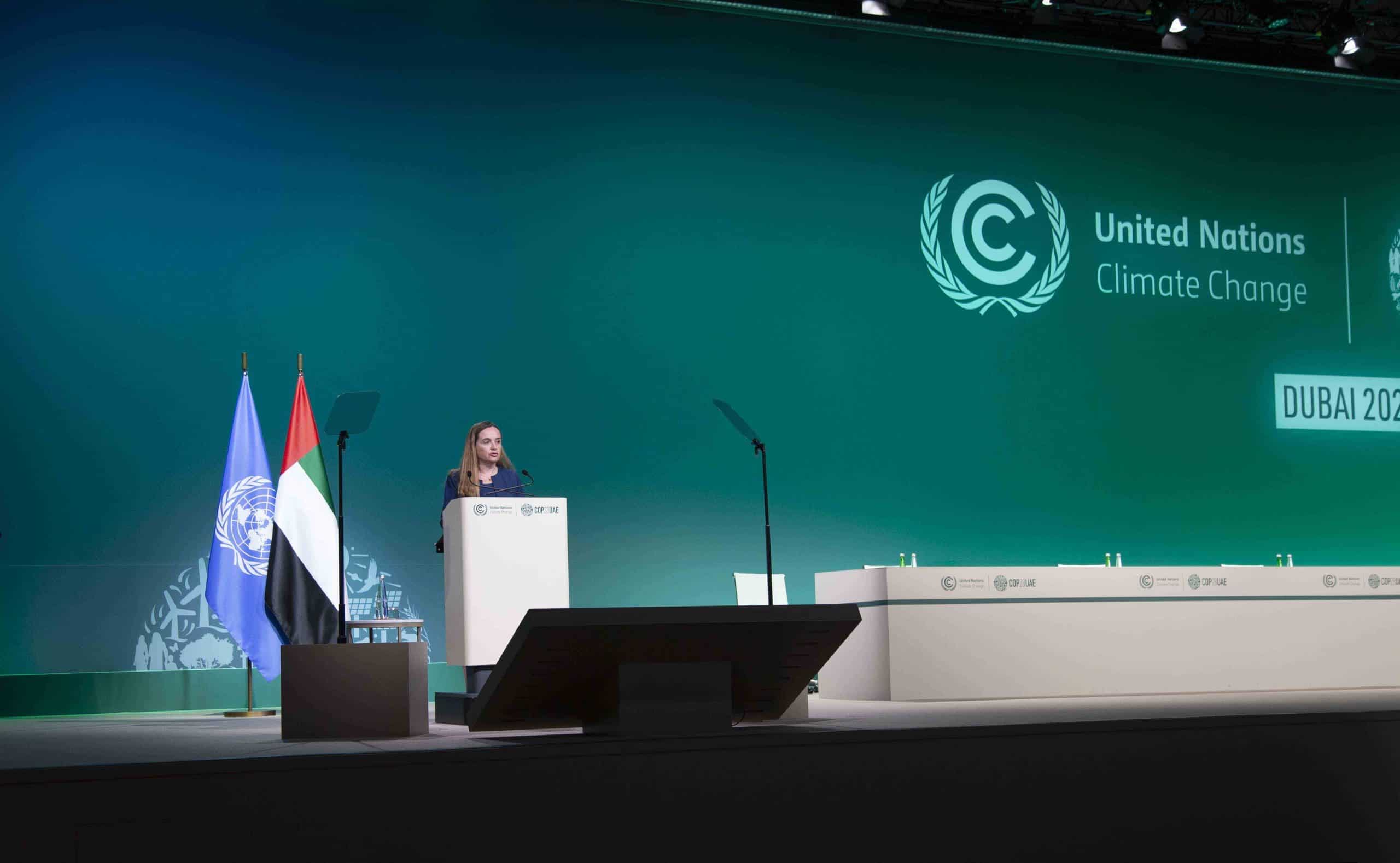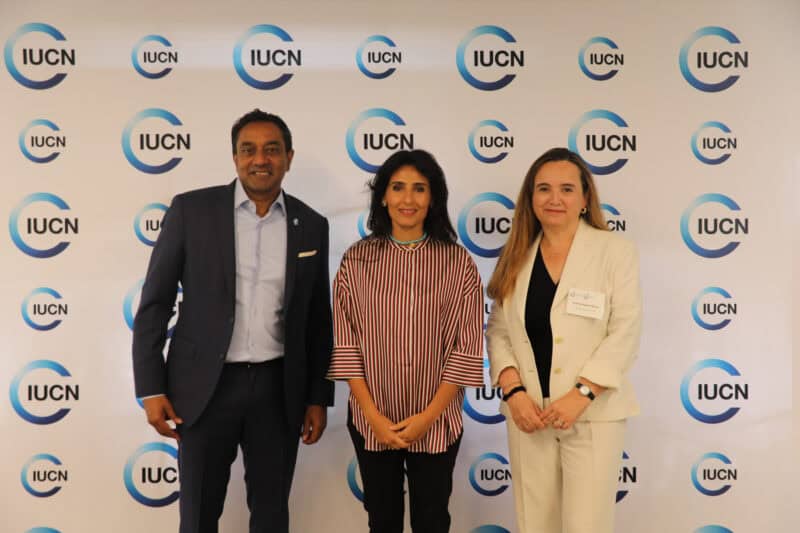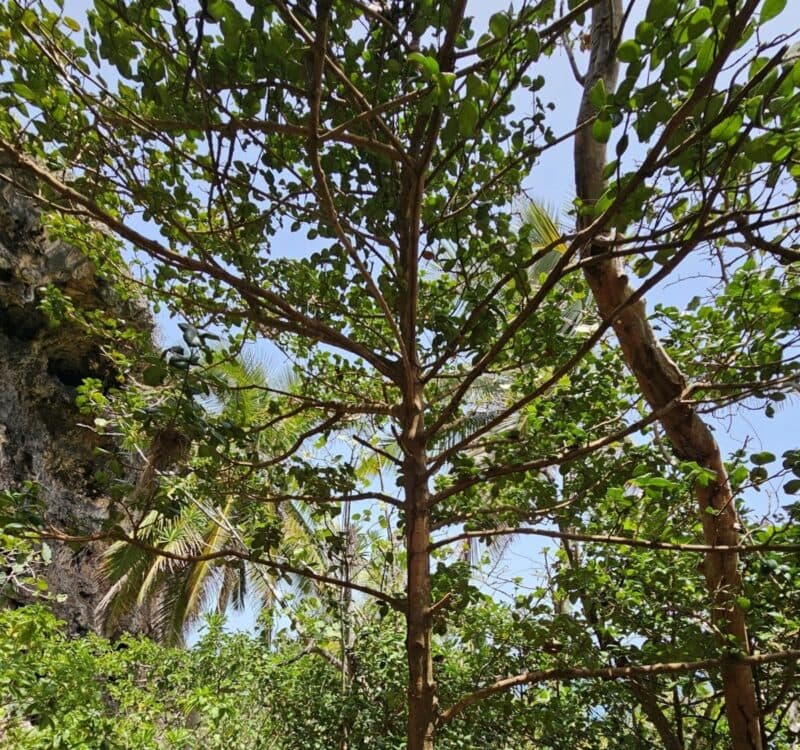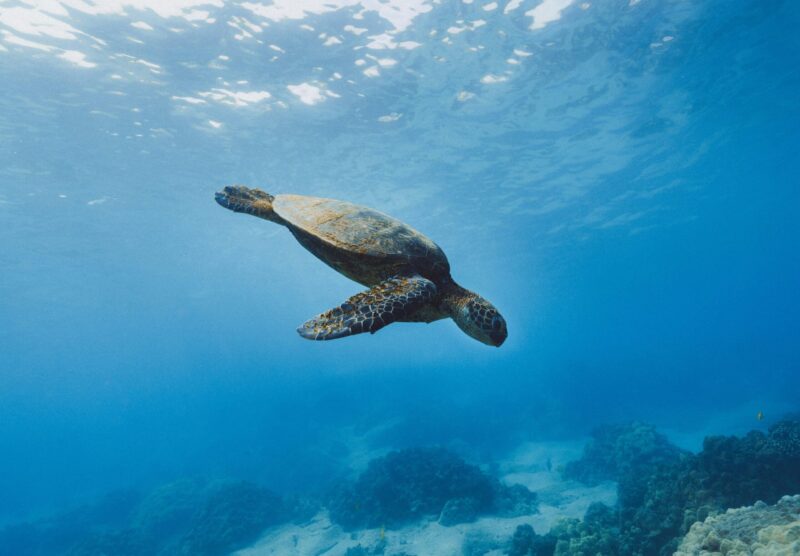News
IUCN Champions Nature at COP28

Convened under the Presidency of the United Arab Emirates (UAE), the 28th session of the Conference of the Parties to the United Nations Framework Convention on Climate Change (UNFCCC COP28) in Dubai, UAE, was the largest UN Climate Conference to date.
Nature received unprecedented attention throughout the Conference in Dubai, building historic momentum for addressing the interlinked climate and biodiversity crises in an integrated and inclusive way. IUCN played a central role in this effort, particularly as IUCN President, Her Excellency Ms. Razan Al Mubarak, also served as the UN Climate Change High-Level Champion on behalf of the UAE COP28 Presidency, resulting in the topics of both nature and inclusion being highlighted as key COP Presidency priorities.
Director General Dr. Grethel Aguilar led IUCN’s official delegation at COP28. Strong cooperation with IUCN’s West Asia Members, Councillors from the region, and the UAE government, ensured that the Union’s impact at this Climate Change Conference was at its the most impressive in many years. IUCN’s overall policy engagement in Dubai was guided by its COP28 position paper. The position paper, developed in close collaboration with the IUCN COP28 Working Group (comprising Councillors, Commission Chairs and Secretariat staff) laid a solid foundation for IUCN’s on-the-ground engagement in Dubai. The dedicated 150sqm ‘Unite for Nature’ IUCN Pavilion in the official UN-organized Blue Zone was abuzz with activity throughout COP28, hosting 77 events and 10 Receptions over the 2-week period, and served as the home for the Union and as fertile ground for inspiring global leaders for conservation action.
Major substantive highlights of COP28 from IUCN’s perspective included the following:
-
- Strong recognition of the importance of nature and inclusion in formal COP28 decisions/ outcomes, including strong references to the role of nature and ecosystems in the Global Stocktake (GST) and the Global Goal on Adaptation (GGA) decisions.
-
- Key nature-related high-level events, announcements and declarations convened by the UAE COP28 Presidency/ High Level Champions, including the launch of a Nature-based Solutions Finance Hub for Asia and the Pacific, expansion of the ENACT partnership, and the Mangrove Breakthrough.
-
- Growing recognition of Indigenous Peoples voices at COP28, including the launch of the Podong Indigenous Peoples Initiative and Act30.
-
- Strengthening of gender equality and women’s empowerment at COP28, including historic new support for IUCN’s Resilient, Inclusive, and Sustainable Environments (RISE) grants challenge.
-
- Other important IUCN institutional launches, engagements and activities at COP28 included IUCN Director General’s High-Level Plenary Statement, the release of the IUCN Red List Update, IUCN co-hosting the Global Forum on Human Settlements, and the launch of a new IUCN partnership to accelerate the deployment of renewables while ensuring the protection and restoration of the natural environment.
A context of progress at COP28
The central highlight was the First Global Stocktake of the Paris Agreement, where Parties assessed the collective progress and set a course for future action, particularly to increase the ambition of their 2025 climate plans, or Nationally Determined Contributions (NDCs). A landmark development in this regard was the inclusion – for the first time ever – of an explicit call for ‘transitioning away from fossil fuels … in a just, orderly and equitable manner’ to keep the agreed global temperature rise limit of 1.5°C within reach. Although this fell short of a call for a clear ‘phase-out’ of fossil fuels that many had wanted, it was nevertheless acknowledged as strong signal to mark the ‘beginning of the end’ of the fossil fuel era.
Another historic achievement was operationalizing of a loss and damage fund, to which around US$700 million was announced over the course of the conference, in addition to a range of other climate finance pledges. Still, commitments fell short of the trillions needed to fully implement goals of the Paris Agreement and climate finance remained at the core of the debate throughout COP28.
Other key formal outcomes of COP28 included reaching agreement on a concrete framework for guiding the achievement of the Paris Agreement’s Global Goal on Adaptation; a decision elaborating the objectives, elements and modalities of a ‘Just Transition Work Programme’ that had been established at COP27 last year was also successfully adopted in Dubai.
About IUCN’s International Policy Centre
IUCN’s International Policy Centre provides leadership and guidance for the whole of the Union, showcasing IUCN’s positions and influence at high-level international fora. IUCN engages in multilateral policy processes and international environmental forums to provide policy and technical advice to negotiators and key stakeholders to help safeguard the planet and all who depend on it.
IUCN has a proven track record as a trusted policy and scientific advisor, and in supporting the implementation of the 2030 Agenda for Sustainable Development and the Sustainable Development Goals, the Rio Conventions and a number of other biodiversity-related conventions. Our recommendations are based on our extensive on-the-ground experience and scientific expertise.


